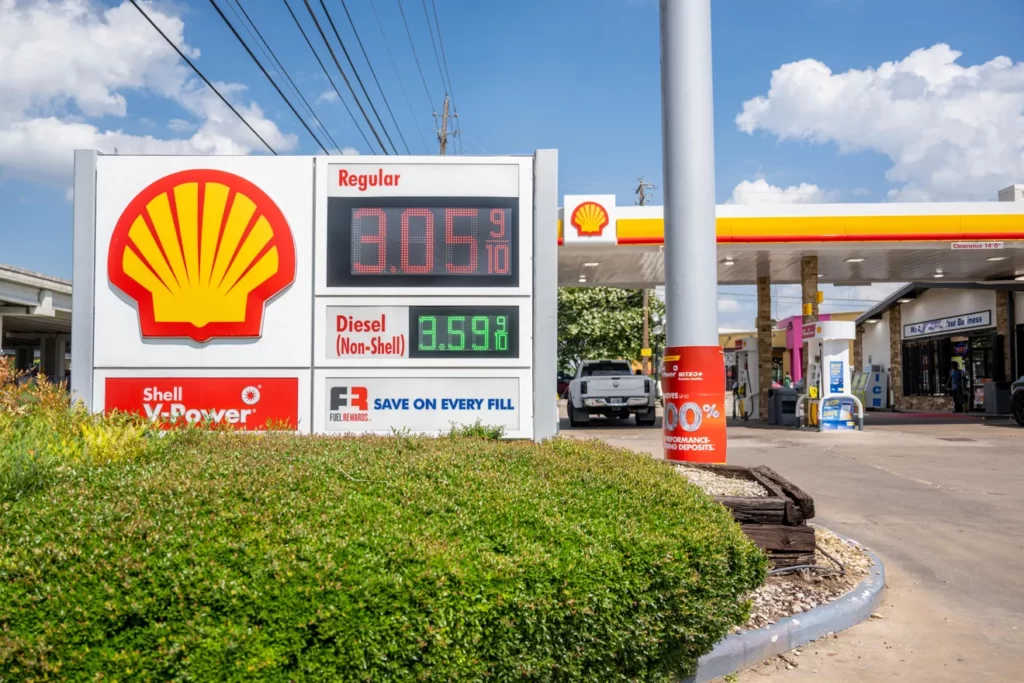Prices of gas are higher in the summer season. High temperatures play a significant role in this situation. As the heat goes up, the need for energy to cool down a system requires extra expense. Due to this, prices go higher in summers.
There are many chances of increased gas prices during the summer months can be due to several factors.
One of the primary drivers behind the rising gas prices is the increased demand for electricity. With hotter temperatures, households and businesses rely more heavily on air conditioning systems to maintain comfortable indoor environments. Additionally, the agricultural sector often requires significant amounts of water for irrigation during hot weather, further escalating energy demand.
Gas prices have been increasing due to unusually high temperatures this summer.
Impact of Heat Wave
While the heat keeps people at home, refineries are unable to produce refined products. Refineries are typically designed to run between 32 to 95 degrees Fahrenheit (0 to 35 degrees Celsius). Refineries avoid extreme temperatures because they’re dangerous places…So they stop production due to safety reasons: this makes the production limited.
The Gulf Coast is a significant region for the production of oil refining. Refining can process a maximum amount of oil production under normal circumstances. Approximately 10 million barrels of oil are processed daily. Whereas extremely high temperatures pose challenges for these refineries, which consequently results in a loss of production.
While some refineries are still facing difficulties and operating below normal conditions. Those refiners which are continuing their production, are making sustainable profits. The U.S domestic demand during peak summer is slightly below. However, a substantial amount of gasoline is exported by the nation to other countries. These exports contribute to financial success for refineries, despite the challenges caused by the heat waves.

Refinery Capacity on Global Oil Market
Refinery capacity is affecting the deliberate supply cuts by major oil-producing countries in the OPEC+ alliance has created a complex situation in the oil market. Like Saudi Arabia reduced its oil amount by about 1 million barrels each day. Russia also exports less.
Gross specified that the reductions in production aren’t affecting all of OPEC. He believes that, as inflation decreases, it is likely to create improved economic prospects which could have an influence on the cost of oil worldwide.
WHICH STATES HAVE THE HIGHEST GAS PRICES TODAY?
Certain locations in the U.S. have higher gas prices than other parts. These high prices in some regions are because of their location and reason, which affect local and regional refineries in some states.
The highest gas prices in some regions include:
- California $5.01 per Gallon
- Oregon $4.92 per Gallon
- Washington $4.96 per Gallon
Lowest gas prices in some regions of the U.S
- Louisiana $3.39 per gallon
- Mississippi $3.29 per gallon
- Alabama $3.40 per gallon
WILL GAS PRICES CONTINUE TO CLIMB?
According to experts, it’s hard to expect will gas prices increase or not.
As we enter into fall, it is expected a decrease in temperature. But experts indicate a high risk of hurricanes after a decrease in temperature, which eventually slows down these refineries.
Kloza is suggesting there are no significant tropical storm force or hurricane winds in the Gulf of Mexico. This will gradually increase production and so gas prices and oil markets will remain stabilized as well. However, the concerts arise from unprecedented water temperatures from these regions recently. If such storms occur this will disrupt oil and gas operations, which in turn results in price violations in the markets. Therefore, the condition of Gulf of Mexico seems to be high oil market prices in the future.
How to Save Gas and Cut Your Fuel Expenses
Saving gas can be achieved through several simple effective practices. Implementing these strategies will help you to reduce fuel expenses and also contribute to environmental conservation. There are some tips to save gas.
- Ensure your vehicle tires are inflated to the recommended pressure level. Lower tire pressure is not maximizing your fuel efficiency and will cost you more money.
- Drive near the posted speed limit. High speed requires more energy and leads to more fuel consumption.
- Modern vehicles have Eco- a mode setting that optimizes fuel efficiency.
- Reduce unnecessary items from your vehicle, especially heavy objects, as extra weight can reduce fuel efficiency.
- When driving on long, flat stretches of highways, use cruise control to maintain a constant speed and improve fuel efficiency.
- Keep your vehicle regularly maintained as per instructions from the manufacturers. A well-maintained engine and clean air filters improve fuel efficiency.
For more Amazing and Unique information and posts visit our Home page... If you have any suggestions or information, feel free to share them with us ….






